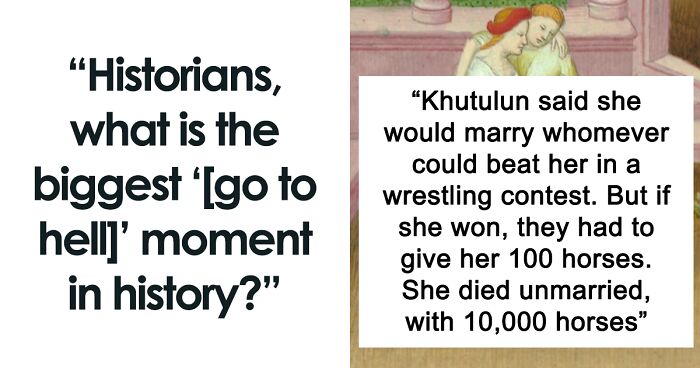
Someone Asked Historians To Share History’s Biggest ‘Middle Finger’ Moments, And 30 People Delivered
We’re pretty big fans of history, back in school, as well as now. But hidden among the tales about treaties, important battles, and biographies of the people who helped shape the world as we live in now, are some truly epic tidbits that you might not know about. These are moments in history that are—there’s really no other word for it—cool. And they’re what some of us may have been regaling our friends with at dinner parties to show off how much we know.
Courage. Charisma. Grit. Valor. Wisdom. These are the things that help people stand out from the crowds and the ocean of events that happen every day. That and the need for revenge. The historians of Reddit shared some of the biggest 'go to hell' moments in history, and they’re far too good not to share with you, dear Pandas. Though be warned, some of them are quite gory. But that's history for you.
If this won’t spark an interest in history inside your soul, then probably nothing will. Scroll down, upvote the historical stories that impressed you the most, and share the ones you know but the historians may have missed in the comments. Be sure to take notes… there’s going to be a test on this at the end of the semester.
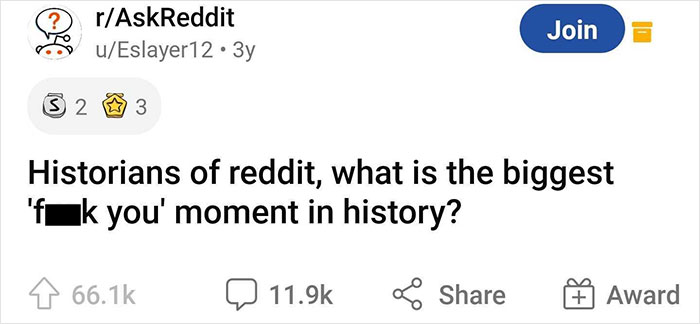
This post may include affiliate links.
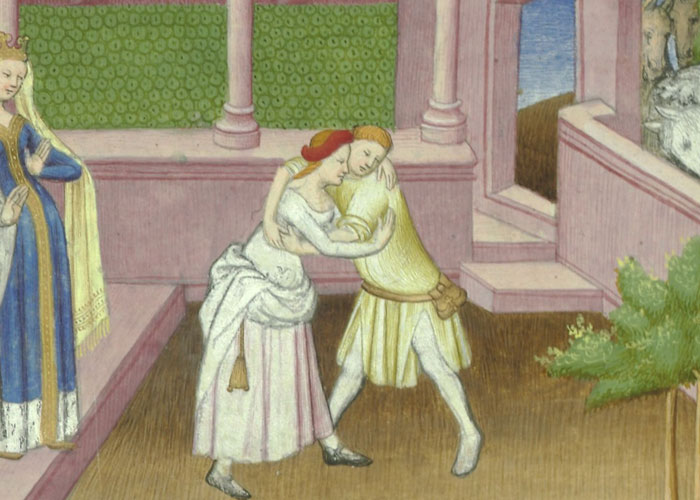 The story of Khutulun, who was Genghis Khan's great-great-granddaughter. She said she would marry whomever could beat her in a wrestling contest. If she won though, they had to give her 100 horses.
She died unmarried, with 10,000 horses.
The story of Khutulun, who was Genghis Khan's great-great-granddaughter. She said she would marry whomever could beat her in a wrestling contest. If she won though, they had to give her 100 horses.
She died unmarried, with 10,000 horses.
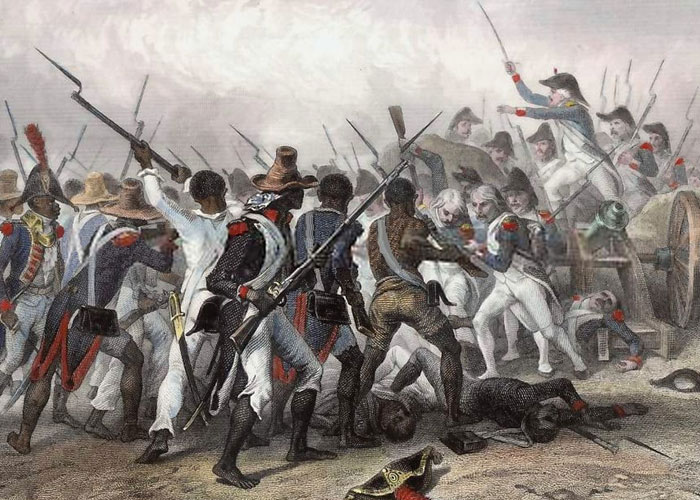 How about the moment slaves in Haiti realized they outnumbered their captors almost 10 to 1, revolted, and ultimately won their independence.
How about the moment slaves in Haiti realized they outnumbered their captors almost 10 to 1, revolted, and ultimately won their independence.
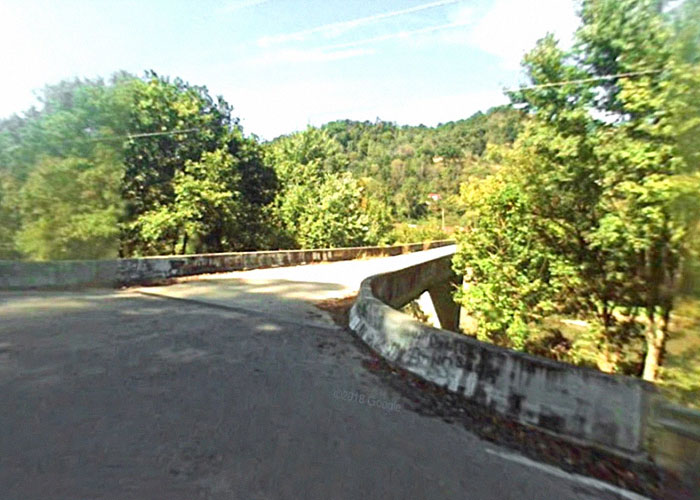 In the 1970s the small town of Vulcan, West Virginia asked for state funding to replace a bridge into town. The state legislature refused to grant Vulcan the funding they needed. Instead the town appealed to the Soviet Union for aid. After hearing about the request, the state legislature immediately granted over $1 million for the town to build a new bridge.
If a small town in WV asking for soviet funding in the middle of the Cold War isn’t a big middle finger to the state government, then I don’t know what is.
In the 1970s the small town of Vulcan, West Virginia asked for state funding to replace a bridge into town. The state legislature refused to grant Vulcan the funding they needed. Instead the town appealed to the Soviet Union for aid. After hearing about the request, the state legislature immediately granted over $1 million for the town to build a new bridge.
If a small town in WV asking for soviet funding in the middle of the Cold War isn’t a big middle finger to the state government, then I don’t know what is.
As with all things in life, it’s best to take everything with a grain of salt. Getting to the truth about what happened is difficult enough in modern times. Though some things become clearer as more time passes and the emotional background attached to certain events ebbs away, some details and nuances also get lost. So getting to grips with what actually happened is a ton of work. This is why we value historians so much.
That’s not to say that there are no epic moments in history, full of defiance, puffed-out chests, and pride practically oozing out of everyone’s pores. There are. But the thing about stories is that they have to capture the listener’s and reader’s imagination. When retelling a certain tale, a person (whether in 2022 or centuries ago) might embellish certain aspects while leaving some details by the wayside. And with each retelling, the story might be closer to a myth than cold hard facts.
Epic moments make for great stories. However, you can’t assume that everyone telling on “the front page of the internet” will be as objective as they would when writing a history book or debating things with their colleagues. Did these epic moments happen? Definitely. But there’s always more context to be had, and that’s part of the appeal: these posts inspire you to dig a bit deeper about Bismarck, Napoleon, and pirate Jean Lafitte.
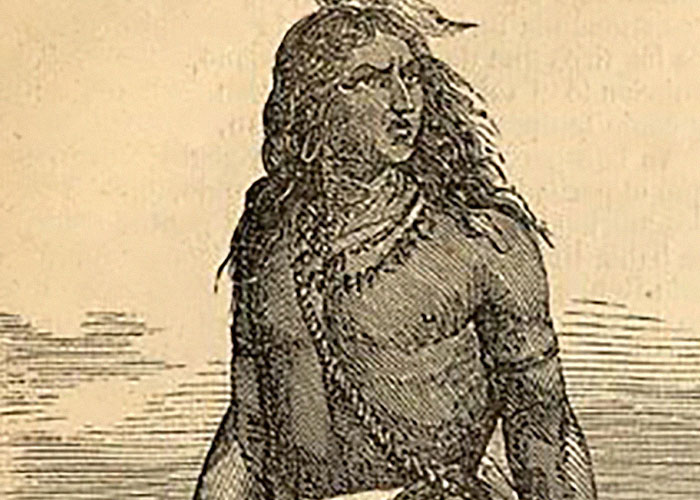 Galvarino: Chilean warrior who had both his hands cut off by the conquistadors for raising arms against the Spanish. Instead of letting himself serve as a message of helplessness in the face of the invaders the crazy bastard strapped swords to his stumps and went on the warpath.
Galvarino: Chilean warrior who had both his hands cut off by the conquistadors for raising arms against the Spanish. Instead of letting himself serve as a message of helplessness in the face of the invaders the crazy bastard strapped swords to his stumps and went on the warpath.
I had a great uncle who had both arms blown off just above the elbow in a mining accident when he was a teenager. He was the sole breadwinner for his family since his father had died in a different non-mining explosion, so he was only gone a week or so before he returned to the mine with some sort of mallets or hammers strapped to his arms. He was given a new job and did so well that he was eventually hired by the local fire department to assist in knocking down doors to enter buildings and do other such tasks. It's obviously not as badass as that warrior but it reminded me of it.
 Olga of Kiev. When her husband died, the country that killed him assumed they’d just take over and force her into marriage.
She straight up killed the dignitaries that were sent to tell her she had to marry - multiple times, in the most intense way possible.
She then travelled to where her husband had been killed and basically burnt the place to the ground - again, in the most hardcore, amazing way.
They made her a freaking saint. Worth the read on Wikipedia!
Olga of Kiev. When her husband died, the country that killed him assumed they’d just take over and force her into marriage.
She straight up killed the dignitaries that were sent to tell her she had to marry - multiple times, in the most intense way possible.
She then travelled to where her husband had been killed and basically burnt the place to the ground - again, in the most hardcore, amazing way.
They made her a freaking saint. Worth the read on Wikipedia!
Very badass and hardcore, but I don't hold with idolizing people for killing sprees, organized or otherwise
 Ferruccio Lamborghini was a rich man owning his company that built tractors, he talked to Ferrari about the imperfections of his car and how to improve them and they basically laughed at a young tractor mechanic trying to tell them about sport cars, so he decided to start making luxury sport cars to compete with Ferrari and thus, the rivalry was born. So i'd say the middle finger of this guy to Ferrari was pretty noticeable.
Ferruccio Lamborghini was a rich man owning his company that built tractors, he talked to Ferrari about the imperfections of his car and how to improve them and they basically laughed at a young tractor mechanic trying to tell them about sport cars, so he decided to start making luxury sport cars to compete with Ferrari and thus, the rivalry was born. So i'd say the middle finger of this guy to Ferrari was pretty noticeable.
A while ago, Bored Panda had a good chat about the reliability of information with the team running the r/AskHistorians subreddit. A representative of the community, of the moderators, explained to us that checking each and every historical claim is very time intensive.
“Even then, a lot of knowledge is locked in academic libraries and behind paywalls, so it can be impossible to access anyway. When looking at ‘mindblowing’ facts on the internet a healthy sense of skepticism is essential—as is looking at the source. Is this being claimed by Twitter user @fakefacts420 or a Professor of History at the University of Oxford? Are you reading this on a university website or an email your nan has forwarded you?" they said that we should always be aware of who is claiming something happened.
"While you might not have time to chase down historical references in the archives, there are many sites who have detailed debunkings of common historical myths and misconceptions. Checking there is always a good start," they suggested starting with Snopes or AskHistorians to double-check some facts.
A pirate known as jean lefitte had a bounty of $500 put on him by a governor. So he put a $5000 bounty on the governor
 The Achaemenid Empire had trouble conquering Egypt in the early part of their War so they decided to use the very embodiment of their holy figure against them. They literally had soldiers carry cats with them and painted cat heads on their shields so the Egyptians couldn't fight back due to their beliefs and surrendered.
They literally pulled a "your god is our frontline".
This is known as the Battle of Pelusium.
The Achaemenid Empire had trouble conquering Egypt in the early part of their War so they decided to use the very embodiment of their holy figure against them. They literally had soldiers carry cats with them and painted cat heads on their shields so the Egyptians couldn't fight back due to their beliefs and surrendered.
They literally pulled a "your god is our frontline".
This is known as the Battle of Pelusium.
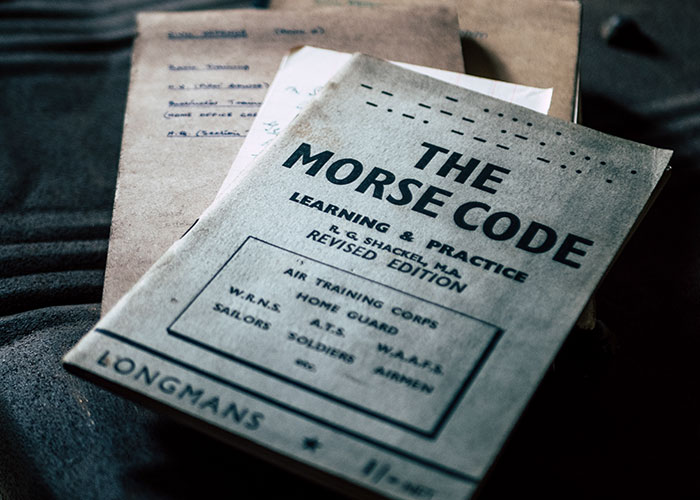 British prisoner of war in Nazi germany stitches a quilt. The Nazis put it out for show. Hidden in Morse code stitched in were the words “f**k hitler” and “god save the Queen”
British prisoner of war in Nazi germany stitches a quilt. The Nazis put it out for show. Hidden in Morse code stitched in were the words “f**k hitler” and “god save the Queen”
"There are probably dozens of potential conspiracies surrounding Sumerian agriculture, but that topic isn’t in the public eye in the same way that something like the Second World War or the Roman Empire is," the r/AskHistorians moderator explained to Bored Panda that conspiracy theories are nothing new and they touch pretty much every era and topic.
They added that some people want to “exploit past events to push a political point in the present day,” so they weaponize historical conspiracies. So one of the questions that you should pretty much always have in the back of your mind is ‘who benefits?’ when you hear someone aggressively pushing one narrative or another. The more important the event, the more likely it is that someone may try to twist the truth for their own ends, whatever they might be.
"Because these events and periods are seen as important for the formation of the modern world, people see it as important that history aligns to their worldview or political leanings—even when it does not—and seek to twist reality in order to achieve this,” the historian warned. They also noted that it’s important for people to learn how to trust the trustworthiness of a source and to figure out how a historical document might be biased.
“I’d rather go to hell, with my noble ancestors, than to go to heaven and join the likes of you…” Norse King tried to be converted to Christianity on threat of burning in hell for paganism
Yeah. But then my freaking ancestors joined Catholicism and then proceeded to spread it wherever they pillaged
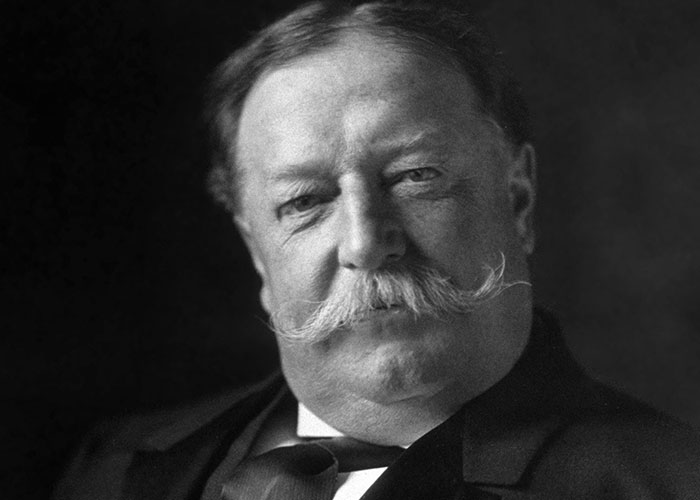 This is more petty, but when Taft bragged to his friends via telegram about scaling a mountain on horseback, that it was a few thousand feet, clear weather, all in all not too difficult, his friend replied, "HOW IS HORSE?"
This is more petty, but when Taft bragged to his friends via telegram about scaling a mountain on horseback, that it was a few thousand feet, clear weather, all in all not too difficult, his friend replied, "HOW IS HORSE?"
“Stop sending people to kill me! We've already captured five of them, one of them with a bomb and another with a rifle... If you don't stop sending killers, I'll send a very fast working one to Moscow and I certainly won't have to send another.” Tito to Joseph Stalin
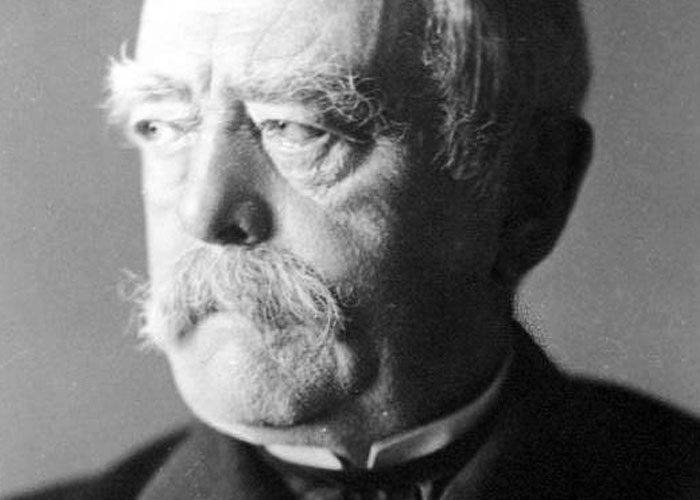 When Otto von Bismarck was about 50, he was walking down a street when a man ran up to him and shot him five times. Otto then turned around and began to beat the absolute s**t out of him until some armed guards come to help him. When they inspected Otto for wounds, they found that all 5 hit, but they all either just grazed him or bounced off his ribs. Literally the iron chancellor.
When Otto von Bismarck was about 50, he was walking down a street when a man ran up to him and shot him five times. Otto then turned around and began to beat the absolute s**t out of him until some armed guards come to help him. When they inspected Otto for wounds, they found that all 5 hit, but they all either just grazed him or bounced off his ribs. Literally the iron chancellor.
Guns used to be less powerful (note to USA the second amendment was written at this time).
 The first cell phone. The first call ever made from a cell phone was to a competitor's landline. Big d**k energy
The first cell phone. The first call ever made from a cell phone was to a competitor's landline. Big d**k energy
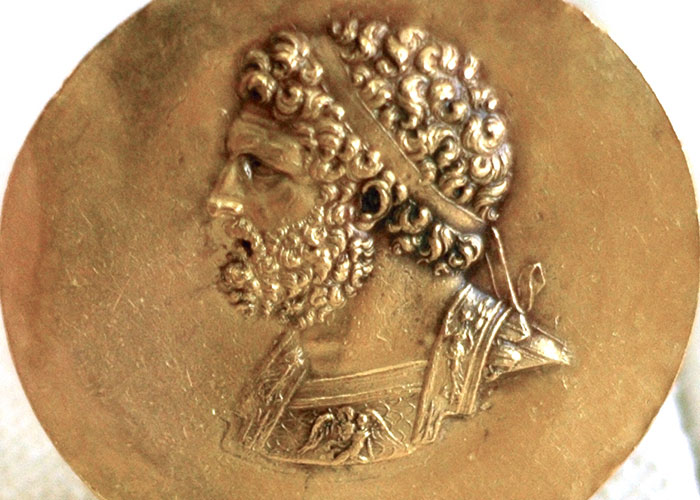 Sparta to Phillip II
Phillip wrote to Sparta that if he marches into Sparta he will raise the land, burn the crops, rape the women, and just destroy the city. Sparta replies back with a single word.
“If”
Sparta to Phillip II
Phillip wrote to Sparta that if he marches into Sparta he will raise the land, burn the crops, rape the women, and just destroy the city. Sparta replies back with a single word.
“If”
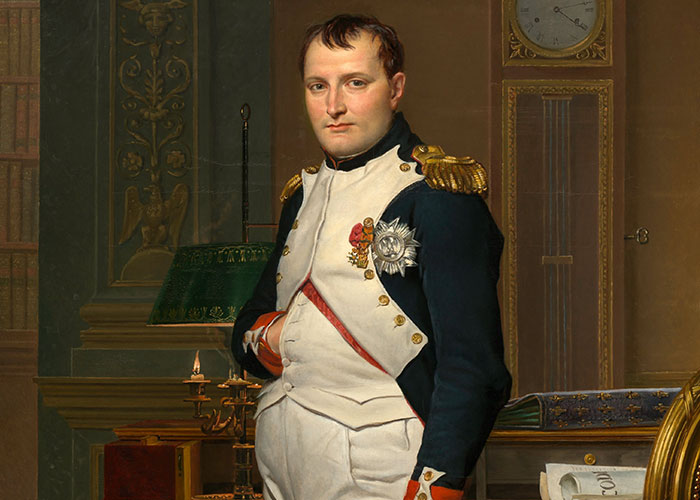 So when France exiles Napoleon Bonaparte (the first time), they didn’t think to change out military personnel. So he basically rolls up to the first French outpost he gets to, says “‘sup” and begins reassembling an army. By the time he gets to Paris, he’s got enough forces that France is like “well. Welcome back.”
So when France exiles Napoleon Bonaparte (the first time), they didn’t think to change out military personnel. So he basically rolls up to the first French outpost he gets to, says “‘sup” and begins reassembling an army. By the time he gets to Paris, he’s got enough forces that France is like “well. Welcome back.”
It didn't take long for the soldiers to figure that the Bourbons hadn't changed even though they'd been exiled or rendered into being daisy food by the revolution.
 When Robert E. Lee decided to side with the South in the Civil War, to spite him the North used his property as a graveyard.
It is now Arlington National Cemetary.
When Robert E. Lee decided to side with the South in the Civil War, to spite him the North used his property as a graveyard.
It is now Arlington National Cemetary.
Actually, they used his property as a cemetery, not as a graveyard. A graveyard is part of a larger property - usually a church. A cemetery is an independent property that is only used for burials.
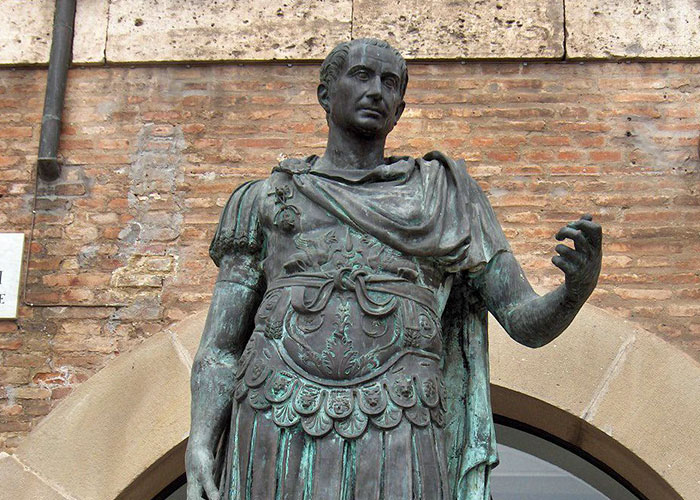 Caesar in his youth, before he became famous, was captured by pirates off the coast of Italy and held hostage.
He promptly befriended the pirates, getting drunk and shared stories while they waited for the ransom to be paid.
Later, after he was released, he went back to find and capture the same pirates, and ordered their deaths because they requested an insultingly low ransom for a man of his stature.
Caesar in his youth, before he became famous, was captured by pirates off the coast of Italy and held hostage.
He promptly befriended the pirates, getting drunk and shared stories while they waited for the ransom to be paid.
Later, after he was released, he went back to find and capture the same pirates, and ordered their deaths because they requested an insultingly low ransom for a man of his stature.
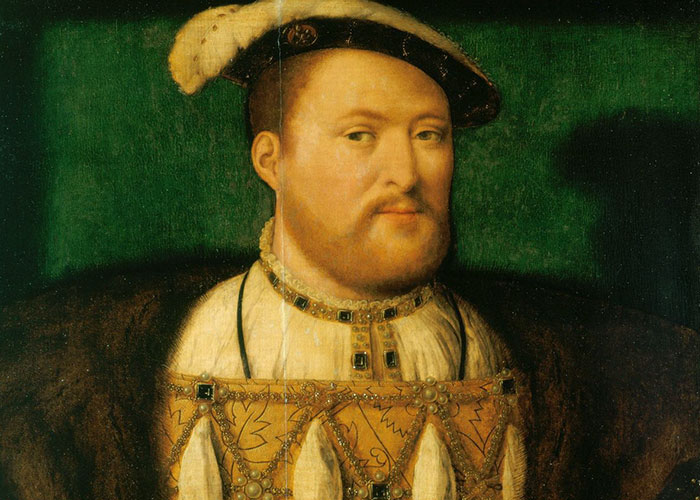 When Henry VIII wanted to annul his marriage to Catherine of Aragon the Pope said you can't do that. Henry then created the Church of England so he could get divorced.
When Henry VIII wanted to annul his marriage to Catherine of Aragon the Pope said you can't do that. Henry then created the Church of England so he could get divorced.
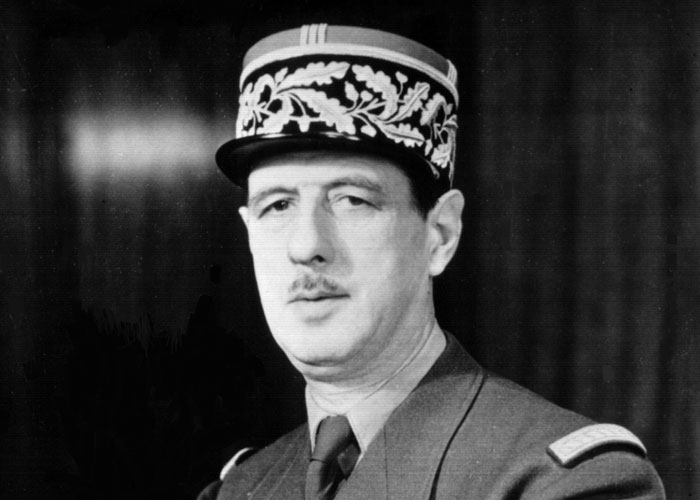 Not the biggest, but definitely one to note. In 1966, Charles DeGaulle ordered all U.S. Troops out of France, as he said the country was leaving NATO, LBJ's first words were to his Secretary of State, Dean Rusk, "Ask him about the cemetaries, Dean!"
When Dean Rusk mentioned whether or not the 60,000+ US soldiers buried in France were to be removed, DeGaulle simply stood up and left the room, embarrassed.
Not the biggest, but definitely one to note. In 1966, Charles DeGaulle ordered all U.S. Troops out of France, as he said the country was leaving NATO, LBJ's first words were to his Secretary of State, Dean Rusk, "Ask him about the cemetaries, Dean!"
When Dean Rusk mentioned whether or not the 60,000+ US soldiers buried in France were to be removed, DeGaulle simply stood up and left the room, embarrassed.
A year later De Gaulle visited Quebec in Canada for Canada's centennial. Quebec was experiencing terrorism by the separatists of the Front de Libération du Québec, FLQ. De F'ing Gaulle declared from Montreal's city hall, "Vive le Québec libre", "long live free Quebec". That was just a few years after France lost the Algerian war for independence, with its terrorism on French soil. De Gaulle was a butt wipe.
 In the late 1980s Nintendo and Sony developed a CD add-on for the Super Nintendo. Nintendo then pulled out of the partnership and opted to work with Phillips instead and released the CD-i.
This move was highly frowned upon because Nintendo had decided to ditch a fellow Japanese company over a foreign one. So Sony picked up the pieces of the project and tried to partner with Sega. The board of directors turned the idea down saying "that’s a stupid idea, Sony doesn’t know how to make hardware. They don’t know how to make software either. Why would we want to do this?"
At the end Sony released a game system by the name of Playstation in 1994 to compete with the Nintendo 64 and outsold their former partners nearly 3:1 plus it marked the first time that Nintendo wasn't top dog since they released the NES.
In the late 1980s Nintendo and Sony developed a CD add-on for the Super Nintendo. Nintendo then pulled out of the partnership and opted to work with Phillips instead and released the CD-i.
This move was highly frowned upon because Nintendo had decided to ditch a fellow Japanese company over a foreign one. So Sony picked up the pieces of the project and tried to partner with Sega. The board of directors turned the idea down saying "that’s a stupid idea, Sony doesn’t know how to make hardware. They don’t know how to make software either. Why would we want to do this?"
At the end Sony released a game system by the name of Playstation in 1994 to compete with the Nintendo 64 and outsold their former partners nearly 3:1 plus it marked the first time that Nintendo wasn't top dog since they released the NES.
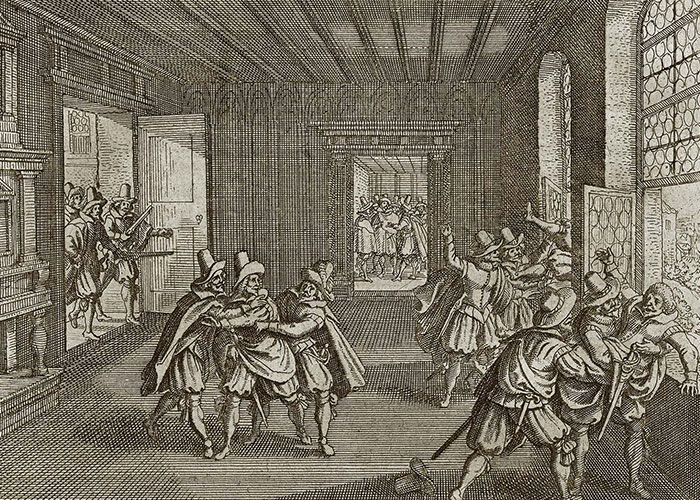 The second defenestration of Prague. The Holy Roman Emperor and King of Bohemia sends representatives to the Protestant city of Prague telling them to convert to Catholicism. The representatives get thrown out a window and allegedly landed in a pile of manure
The second defenestration of Prague. The Holy Roman Emperor and King of Bohemia sends representatives to the Protestant city of Prague telling them to convert to Catholicism. The representatives get thrown out a window and allegedly landed in a pile of manure
 Symphony No. 7 (Shostakovich) was played in besieged Leningrad. And it was broadcasted on the radio, so nazi soldiers could hear it.
Imagine hearing "F**K YOU" from a city that you thought was already dead.
Symphony No. 7 (Shostakovich) was played in besieged Leningrad. And it was broadcasted on the radio, so nazi soldiers could hear it.
Imagine hearing "F**K YOU" from a city that you thought was already dead.
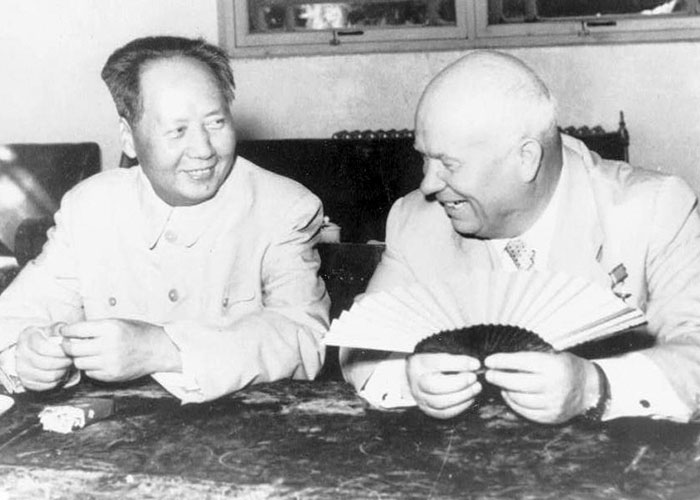 My personal favorite is when Chairman Mao made Nikita Kruschev have a meeting in a pool because he knew he couldn’t swim.
My personal favorite is when Chairman Mao made Nikita Kruschev have a meeting in a pool because he knew he couldn’t swim.
When France surrendered in ww2, Hitler thought Britain would surrender. So the next day, the British Royal Navy sailed to North Africa and sunk all of the French fleet so Germany couldn’t have them.
Mers El Kebir - almost 1300 french sailors were killed by their british allies....
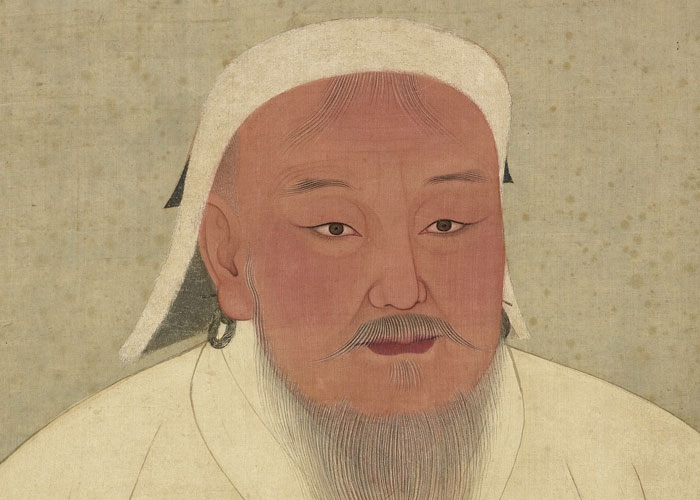 Genghis Khan to Shah Ala ad-Din.
After the Kwarezmids plundered one of Genghis Khans caravans, killed his people, and took his s**t, he thought to take the diplomatic approach and send 2 envoys and an interpreter.
Shah Ala ad-Din decided to be a dumba** about it.
He shaved the heads of the envoys to shame them and sent them back with the head of the interpreter.
Mr. Khan was kinda pissed, so he marched 200000 of his boys and f*****g annihilated their town with only 1/4 of that number even able to fight back. He was so pissed at the Shah that he had the rivers keeping the surrounding villages alive fully diverted, so that he would literally wipe Ala ad-Dins birthplace off the map and make it so that it was like he never existed.
No one would settle there or live there ever again. No one would be there to remember his enemy who had disrespected him.
"Not even the dogs or cats" would be spared said Genghis Khan.
Genghis Khan to Shah Ala ad-Din.
After the Kwarezmids plundered one of Genghis Khans caravans, killed his people, and took his s**t, he thought to take the diplomatic approach and send 2 envoys and an interpreter.
Shah Ala ad-Din decided to be a dumba** about it.
He shaved the heads of the envoys to shame them and sent them back with the head of the interpreter.
Mr. Khan was kinda pissed, so he marched 200000 of his boys and f*****g annihilated their town with only 1/4 of that number even able to fight back. He was so pissed at the Shah that he had the rivers keeping the surrounding villages alive fully diverted, so that he would literally wipe Ala ad-Dins birthplace off the map and make it so that it was like he never existed.
No one would settle there or live there ever again. No one would be there to remember his enemy who had disrespected him.
"Not even the dogs or cats" would be spared said Genghis Khan.
Several of them ... My favorite is when Deng Xiao Ping ordered the Chi-com army to invade Vietnam in order to teach them a lesson about the South China Sea dispute. The Chinese rolled across the border and were like “hey where is everyone? Looks like they didn’t even field an army” when they started getting hit with guerilla-types of attacks. The Chinese Commies were supposed to mop the floor - They ended up incurring way more casualties than they anticipated and basically retreated back to China after one month and declared “victory.” Couldn’t get a solid body blow on the Vietnamese army.
My personal favorite: the beginning of the Battle of Stamford Bridge, in England, 1066. England's been invaded by a Norwegian army led by Harald Hardrada, king of Norway, and Tostig Godwinson, exiled English earl and estranged brother to the English king. They've already fought one battle, they've captured York. Things are looking good for them. They're chilling, enjoying their success, waiting at Stamford Bridge for the hostages they demanded. It's a hot day. They're not expecting any trouble. But wait- an English army shows up. That's practically impossible. The battle of Fulford Gate had taken place only five days ago, and the Norwegians had completely routed the forces of the northern earls. The rest of the English army was known to be in the south, awaiting a Norman invasion. Turns out the English had ridden all the way up North in FOUR DAYS. The Norwegians were, understandably, a bit unhappy. They form into a circle. They don't have their armor with them- it's at the ships. It's too hot to be hanging around in mail. They've got helmets and shields and weaponry, and that's it. The English send a rider to negotiate. He tells Tostig that his brother the King is willing to offer him his earldom back and part of the rule of England if he gives up now. Tostig asks what his buddy Harald Hardrada gets for his trouble. "Six feet of English ground, or as much more as he needs, being taller than other men." Tostig says they're done here. The rider rides away. Harald Hardrada asks who that dude was, because if it had been him talking, he'd have just killed the bastard there. Tostig says oh, that's my brother. That's Harold Godwinson, the king. Harold Godwinson rode up to an enemy army personally and told the king of Norway, known to be a great warrior and general, that all he'd get from this invasion was a grave. Battle commences. Norwegians lose. Tostig and Harald Hardrada both die. Huge bloody mess. English army is crippled. And then three days later the Normans land in the south. Harold is f****d. He still marches his army back, gathers as much force as he can, and engages three weeks later. He's killed at Hastings. Normans conquer England. Basically a very personal f**k you moment that snowballed quite intensely. Edit: because a lot of people are asking- yes, this was the battle with the legendary berserker at the bridge. No, it probably didn't actually happen. The story appears hundreds of years later and is very inconsistent. Also, there might not have been an actual bridge there at the time.
Harold Hardrada was something - a great warrior, lover, poet, captain of the Varangian Guard in Constantinople, berserker, king and tyrant. He apparently died of a arrow to the throat in a state of berserkergang, nearly naked and swinging his sword two handed. Tostig, on the other hand, was a complete prick.
I always like to share this story when I can, and it is full of "f**k yous." Alboin, king of the Lombards during the early Middle Ages, killed a rival king on the Italian Peninsula. Alboin was a bit of a d**k and really hated this other king, so he decapitated him and had his skull turned into a drinking cup. Anytime Alboin would party hardy he'd drink out of his brand new mug. Alboin also forced the other king's daughter into marrying him after killing her father. On top of that, Alboin was a mean drunk and would make his new bride drink out of her own father's skull on occasion. So Alboin's wife started screwing some other dude, because she hated her husband for pretty obvious reasons. Her lover and she assassinated Alboin for being such a d**k. Edit: *Cartago delenda est* was another good f**k you
I remember this from Middle School. I guess having someone drink off their father's skull made an impression on my young mind.
The Battle of Agincourt - Or at least the aftermath. Henry V wanted to have a show of force, and marched his 9,000 troops through France, France wasn't having it, so they raised some 12,000.. when France tried to negotiate, Henry launched an assault sparking the battle itself. Using clever use of terrain and the fearsome use of the English long bow, the French took heavy losses. It was believed, however, that any English archer captured by the French had their fore and middle fingers cut off so they could not operate a long bow. Thus inventing the 'two-finger salute', that citizens of the UK are known for, that for us Americans would be the middle finger now. If accounts are true, this is a very *literal "*F**k you!"
Legendary Samurai Musashi Miyamoto, undefeated in about 60 duels and fought in 3 battles was challenged to a duel. This duel was to take place on an island and he also knew his opponent would be using a longer than average blade (I think it was called an 'Odachi') Being the zesty undefeated self-assured wise guy that he was, he accepted the duel, rowed to the island, and then proceeded to beat his opponent to death *with the f*****g boat ore he used to row there because he knew it was longer than his opponents blade by just a few inches* His opponent wanted to prove himself and use a longer blade so It could technically be said that Musashi literally killed a man in a d**k measuring contest of sorts. Edit : Forgive grammar and format, T9's a hard time.
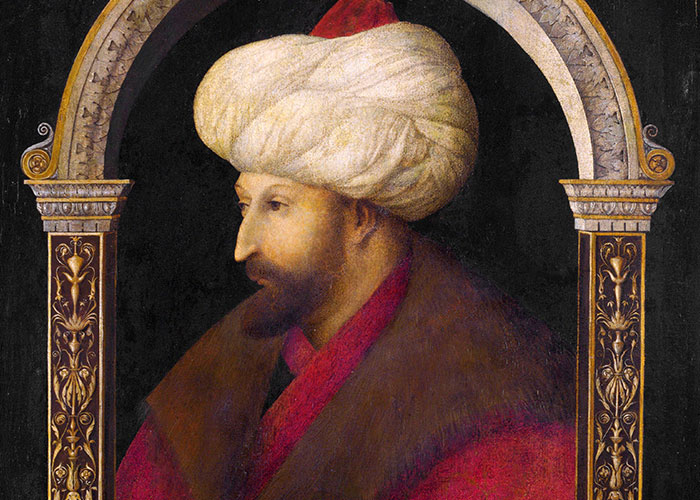 During the conquest of Constantinapol (now Istanbul), when Sultan Mehmet had his ships carried on oily stakes by thousands of men to get past the big chain that prevents ships to enter Bosphorus.
During the conquest of Constantinapol (now Istanbul), when Sultan Mehmet had his ships carried on oily stakes by thousands of men to get past the big chain that prevents ships to enter Bosphorus.
Vikings carried their ships across land on a regular basis. That way they could get from one river to another. And the cool thing is that you only need lik 5-10 ppl to do it and it's not physically very hard. I did it a few years ago and it took just about 10min to get the ship across two fields and into the river. I was totally mindblown at how easy and fast it was!
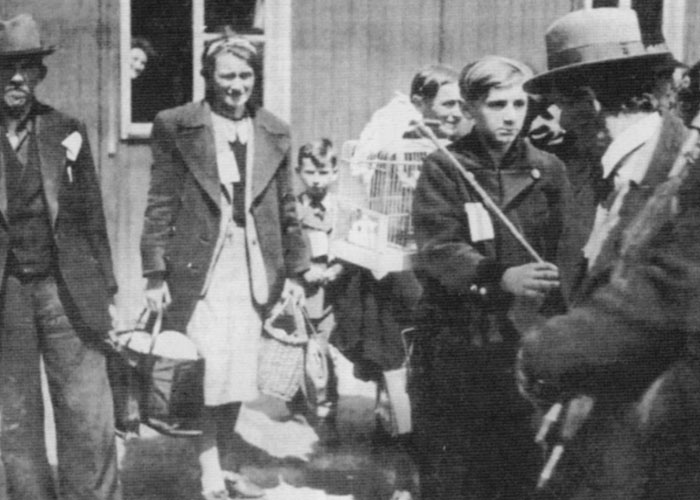 On 30th September 1938, a treaty called the Munich agreement was signed, causing Germany's annexation of Sudetenland (a region of western Czechoslovakia, where many German people lived). It was signed by leaders of the UK, France, Italy, and Germany. UK and France signed it, because Hitler promised, that he won't go to war if he got the Sudetenland (we all know how that turned out). But that's not all. The biggest "f**k you" to Czechoslovakia was, that they weren't invited to the meeting. Yes, they weren't invited to the meeting about their own region. Also, France was an ally of Czechoslovakia at the time. So yeah, thanks for supporting France.
On 30th September 1938, a treaty called the Munich agreement was signed, causing Germany's annexation of Sudetenland (a region of western Czechoslovakia, where many German people lived). It was signed by leaders of the UK, France, Italy, and Germany. UK and France signed it, because Hitler promised, that he won't go to war if he got the Sudetenland (we all know how that turned out). But that's not all. The biggest "f**k you" to Czechoslovakia was, that they weren't invited to the meeting. Yes, they weren't invited to the meeting about their own region. Also, France was an ally of Czechoslovakia at the time. So yeah, thanks for supporting France.
And some 84 years later, France tried to do the same, insisting that Ukraine has to give up it's territory to appease another murderous dictator.
When Germanic tribes invaded Britain after the Romans left, they named the native Celts *Welisc*, meaning "foreigner" (even though they themselves were the foreigners). That later became the word *Welsh*, which the English promptly adopted for phrases like *welch on a bet*. TL;DR: all of history has been one giant etymological middle finger to the Welsh.
Oh it gets worse, only within the last 50 years have we been allowed to scrape back our nationality and our own language. Welsh was banned from being spoken in our schools, the majority of Welsh people can't speak our own language
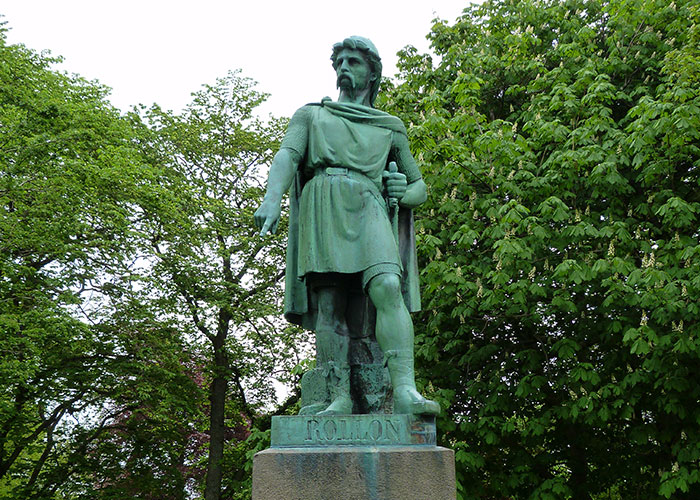 I would say the moment that Rollo swore allegiance to the French king:
"the bishops present suggested that Rollo kiss the king’s foot, as a sign of submission. It was probably an idea intended to humiliate Rollo, and was not taken very well.
After some discussion, it was agreed that one of Rollo’s men would do it. However, the person chosen lifted the king’s foot, and, without bending down, brought it up to his mouth. Not surprisingly the king fell over, amid general laughter in the court. Following this amusing scene, the king and his men swore to honour the concession to Rollo."
I would say the moment that Rollo swore allegiance to the French king:
"the bishops present suggested that Rollo kiss the king’s foot, as a sign of submission. It was probably an idea intended to humiliate Rollo, and was not taken very well.
After some discussion, it was agreed that one of Rollo’s men would do it. However, the person chosen lifted the king’s foot, and, without bending down, brought it up to his mouth. Not surprisingly the king fell over, amid general laughter in the court. Following this amusing scene, the king and his men swore to honour the concession to Rollo."
Rollo I think was William the Conqueror's dad, if I remember correctly.
 This is like the opposite of what you’re asking for because it could have been a big f**k you but it went another way.
Abraham Lincoln, while still a largely unknown frontier lawyer, was asked to assist in a law case by some big wigs out in the east because the trial was going to be held in Springfield and they wanted a local lawyer on the team.
Well the location of the trial got moved but the big wig lawyers never told Lincoln they didn’t need him anymore. He worked really hard on some arguments and showed up to the trial which was now in Ohio or something.
The big wig lawyers were pretty rude to him when he showed up and didn’t use any of his arguments and didn’t allow him to participate.
They did eventually send him a check for payment but Abe sent it back. They did send it back writing enough to get Abe to deposit the check.
When Abe became president he eventually asked the head lawyer of the big wigs in this case (Edwin Stanton) to be his secretary of War. Edwin Stanton grew to truly love Abraham Lincoln and was a very effective Secretary of War. Abe could have remembered the snub from earlier in his career and refused to have anything to do with Stanton but Abe was never truly offended and saw Stanton as a good person to have in his cabinet.
This is like the opposite of what you’re asking for because it could have been a big f**k you but it went another way.
Abraham Lincoln, while still a largely unknown frontier lawyer, was asked to assist in a law case by some big wigs out in the east because the trial was going to be held in Springfield and they wanted a local lawyer on the team.
Well the location of the trial got moved but the big wig lawyers never told Lincoln they didn’t need him anymore. He worked really hard on some arguments and showed up to the trial which was now in Ohio or something.
The big wig lawyers were pretty rude to him when he showed up and didn’t use any of his arguments and didn’t allow him to participate.
They did eventually send him a check for payment but Abe sent it back. They did send it back writing enough to get Abe to deposit the check.
When Abe became president he eventually asked the head lawyer of the big wigs in this case (Edwin Stanton) to be his secretary of War. Edwin Stanton grew to truly love Abraham Lincoln and was a very effective Secretary of War. Abe could have remembered the snub from earlier in his career and refused to have anything to do with Stanton but Abe was never truly offended and saw Stanton as a good person to have in his cabinet.
Battle of Stalingrad. The German commander, Friedrich Paulus, wants to surrender to the Soviets. He has no food and is trapped. He calls up Hitler to ask for permission to surrender and Hitler says no. In fact Hitler promotes him to Field Marshal. This is a “f**k you” because in the history of Prussia and Germany no Field Marshal has ever surrendered. Hitler only did this to ensure Paulus wouldn’t surrender. He basically told him to either die as a Field Marshal or live as a disgrace to Germany. In another “f**k you” Paulus does surrender and in fact becomes a fervent communist and worked with the Soviets in captivity.
 French surrender in WW2: "Hitler dictates that the French capitulation take place at Compiegne, a forest north of Paris. This is the same spot where twenty-two years earlier the Germans had signed the Armistice ending World War I. Hitler intends to disgrace the French and avenge the German defeat. To further deepen the humiliation, he orders that the signing ceremony take place in the same railroad car that hosted the earlier surrender.
The Armistice is signed on June 22. Under its terms, two thirds of France is to be occupied by the Germans. The French army is to be disbanded. In addition, France must bear the cost of the German invasion."
French surrender in WW2: "Hitler dictates that the French capitulation take place at Compiegne, a forest north of Paris. This is the same spot where twenty-two years earlier the Germans had signed the Armistice ending World War I. Hitler intends to disgrace the French and avenge the German defeat. To further deepen the humiliation, he orders that the signing ceremony take place in the same railroad car that hosted the earlier surrender.
The Armistice is signed on June 22. Under its terms, two thirds of France is to be occupied by the Germans. The French army is to be disbanded. In addition, France must bear the cost of the German invasion."
Ther Germans destroyed this railroad waggon at the end of the war to prevent its use for the german surrender....
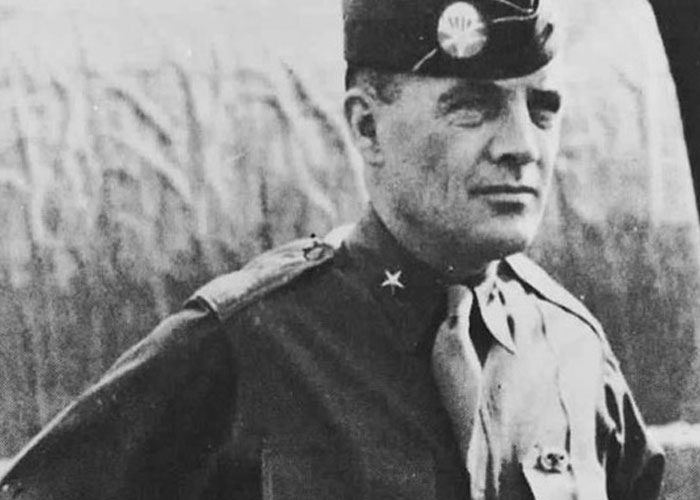 Not a historian, but this is one of my favorites:
"On Dec. 22, four German couriers approached American lines under a flag of truce, carrying a message "from the German commander to the American commander."
Asserting that Bastogne was "encircled," the note gave McAuliffe, who was acting commander of the 101st in the absence of Maj. Gen. Maxwell Taylor, two hours to surrender or face "total annihilation." It offered "the privileges of the Geneva Convention" to the would-be POWs.
What came next would be one of World War II's seminal moments.
To the German commander.
**"Nuts!"** From the American commander.
Not a historian, but this is one of my favorites:
"On Dec. 22, four German couriers approached American lines under a flag of truce, carrying a message "from the German commander to the American commander."
Asserting that Bastogne was "encircled," the note gave McAuliffe, who was acting commander of the 101st in the absence of Maj. Gen. Maxwell Taylor, two hours to surrender or face "total annihilation." It offered "the privileges of the Geneva Convention" to the would-be POWs.
What came next would be one of World War II's seminal moments.
To the German commander.
**"Nuts!"** From the American commander.
My favorite is the simplified humorous description of the French attempt to defeat Russia. French demand: We have captured your capital, surrender immediately. Russian response: No... French response: But... But we have already captured your capital. Russian response: Too bad.
The "Reply of the Zaporozhian Cossacks" is the best response to a demand for surrender, ever. In response to requests by the Sultan of the Ottoman Empire to desist attacks and submit: "Zaporozhian Cossacks to the Turkish Sultan! O sultan, Turkish devil and damned devil's kith and kin, secretary to Lucifer himself. What the devil kind of knight are thou, that canst not slay a hedgehog with your naked a**e? The devil sh*ts, and your army eats. Thou shalt not, thou son of a wh*re, make subjects of Christian sons; we have no fear of your army, by land and by sea we will battle with thee, f**k thy mother. Thou Babylonian scullion, Macedonian wheelwright, brewer of Jerusalem, goat-f****r of Alexandria, swineherd of Greater and Lesser Egypt, pig of Armenia, Podolian thief, catamite of Tartary, hangman of Kamyanets, and fool of all the world and underworld, an idiot before God, grandson of the Serpent, and the crick in our d**k. Pig's snout, mare's a**e, slaughterhouse cur, unchristened brow, screw thine own mother! So the Zaporozhians declare, you lowlife. You won't even be herding pigs for the Christians. Now we'll conclude, for we don't know the date and don't own a calendar; the moon's in the sky, the year with the Lord, the day's the same over here as it is over there; for this kiss our a**e! - Koshovyi otaman Ivan Sirko, with the whole Zaporozhian Host."
There is a wonderful painting by Ilja Repin where Cossacks are writing this letter https://en.wikipedia.org/wiki/Reply_of_the_Zaporozhian_Cossacks
Not a historian, so don't know much about this, but remember that meme about the hot Lucifer statue this guy built for a church? Well, it was considered too alluring and distracting for the young girls at the church, so they removed it and commissioned the guys brother to do another one. The next statue is considered to be even hotter. They just kept it.
IN AD 37 the new Roman Emperor Gaius, better known by the nickname Caligula, built a bridge across the sea. It stretched three miles across the deep blue waters of the Bay of Naples at ancient Rome’s most fashionable seaside resort of Baiae. But Caligula’s was no ordinary bridge. It was a temporary, floating structure built on wooden pontoons, a costly and impressive feat of engineering. It served a single purpose before being dismantled. On a day of boiling heat watched by crowds of spectators, Caligula rode across the bridge. His armour glinted in the sunlight, for the 24-year-old emperor had dressed himself in the golden breastplate of the legendary Greek hero Alexander The Great. On the following day Caligula made the journey in reverse, this time riding in a chariot, followed by soldiers of his personal guard. It was a pointless piece of showmanship, lost on the majority of the crowd, several of whom fell drunkenly to their deaths in the sea after two days’ partying. One historian claimed Caligula pulled the stunt to disprove a prophecy that he had no more chance of becoming emperor than of riding a horse across the Bay of Baiae.
That came from a man who also made his favorite horse a senator because he could. He seriously believed that he could do no wrong, so what else can we expect?
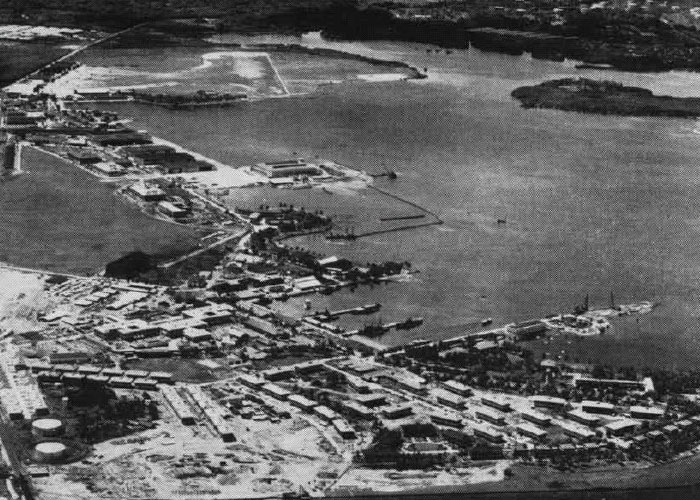 In 1941 the US requested Panama grant a 999-year-long lease to build over 100 military bases within their country, the Panama government asked for compensation in return which the US felt was too high.
The US responded by overthrowing their government by orchestrating a coup. They then signed an agreement with the new one.
In 1941 the US requested Panama grant a 999-year-long lease to build over 100 military bases within their country, the Panama government asked for compensation in return which the US felt was too high.
The US responded by overthrowing their government by orchestrating a coup. They then signed an agreement with the new one.
Operation Paul Bunyan. It’s 1976. Some Americans at the Korean DMZ are cutting down a tree that obscures their vision to the North Korean side. A couple of North Koreans come out and kill a few Americans with their own axe. The Americans and South Koreans come back with such a massive show of force it’s not even funny. Bombers, jet planes, 27 helicopters, a full aircraft carrier moved off the coast. Thousands of troops, troop carriers, commandos, all just to send in a squad of army engineers with chainsaws to cut down that god damn tree.
I’m not an historian, but i know this ww1 fact: in 1918 during the battle of Villers-Bretonneux, major James Robertson made a plan to steal a german tank stuck in no man’s land. There was no point in getting it, because it was dangerous going out there and the tank wasn’t a threat to anyone. Not giving f**k about that he grouped with 12 other men to retrieve that tank, under machine gun fire and inside mustard gas, just to say to the german army “f**k you, look what we got here”. Thanks to him and the other men, today that tank is the only original WW1 tank we have and it’s called “Mephisto”.
I used to climb all over that tank with my brothers. It was kept at the Queensland museum in Brisbane Australia. https://www.awm.gov.au/about/our-work/projects/mephisto
One of my favorites was during the Opium War when the British tried to attack China via sea. The Chinese knew that the British navy was going to f**k their s**t up, and they couldn't respond fast enough, so they decided that being absolutely batsh*t crazy would work best. They got their catapults ready, and when the British were close enough, the Chinese took monkeys, lit them on fire, and f*****g **launched** them at the British ships. The British were horrified when flaming monkey corpses landed on their boat and were like, f**k the opium, they were out. TLDR: The British tried to invade China. China threw flame-doused monkeys at them.
UK: we're fighting a war against drugs. China: that's nice. When did you change side?
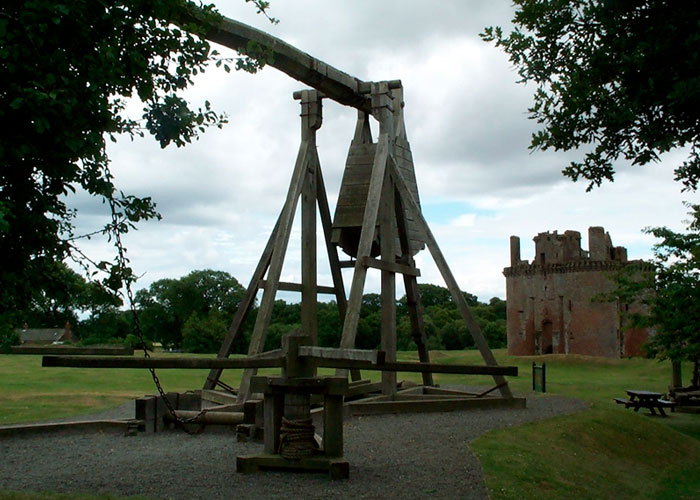 The construction and use of the Warwolf, supposedly the largest trebuchet ever built. When it was disassembled it would fill up 30 wagons. So anyways, king Edward the first built this to siege a Scottish castle. But before it was even built the Scottish people tried to surrender. To which Edward responded with a prompt no(in actuality he responded with “You do not deserve any grace, but must surrender to my will” in other words, I built this trebuchet over 40 days and I am most definitely going to use it) and proceeded to use the trebuchet anyways.
The construction and use of the Warwolf, supposedly the largest trebuchet ever built. When it was disassembled it would fill up 30 wagons. So anyways, king Edward the first built this to siege a Scottish castle. But before it was even built the Scottish people tried to surrender. To which Edward responded with a prompt no(in actuality he responded with “You do not deserve any grace, but must surrender to my will” in other words, I built this trebuchet over 40 days and I am most definitely going to use it) and proceeded to use the trebuchet anyways.
Construction of the Lion’s Mound Monument in Waterloo after Napoleon’s defeat at the hands of the allies. The giant statue is showing its a*s to England while roaring at France.
How’s this for a f**k you, when travellers from France first arrived in London on the Eurostar, the station was Waterloo until they built the permanent station at St Pancras. The French were not happy!
On the crowning of King Henry VII, he backdated his own reign to before the date of the Battle of Bosworth, meaning anyone who was loyal to him now but had shown any sign of opposition at Bosworth was now a traitor and an enemy to the realm. Justice served.
Morocco was the first country to recognize the independence of the United States, which was very nice of them, but the reason they did it was that they had a treaty with England which prevented them from tolerating or engaging in piracy against English ships. No such prohibition on American shipping.
No it wasn't. This is easily checkable, come on. It was one of the first to open its ports to American ships, but didn't recognise the USA formally until quite some time later. Opening ports is not formal recognition.
When Genghis khan wiped out Khwarezmid empire (modern day Iran) because they messed up with his soles.
I don't see anyone talking about Samuel Whittemore. He was a 78 year old farmer from Massachusetts in 1775 during the Revolutionary War. He was in his fields when he saw a troop of British soldiers marching down the road. Whittemore basically slaughtered them in the most epic way possible, dodging behind rocks and firing pistols at them, and fighting them with a sword in hand to hand combat. He was badly injured himself, but people soon discovered him and tended his wounds. He lived for another 18 years and died of natural causes at 96. The thing is, the guy didn't even know the country was at war, he just saw a bunch of soldiers on his property and went bezerk. Basically a big fat, 'You kids get off my lawn!'
This one's fairly minor by comparison, but my grandfather was deployed during the Korean War and he had this story: One night he and his men were camped out somewhere near a body of water - I think it was by a river or maybe they were on an island or something; it's not important. During the night the enemy decided to try psychological warfare on for size: they set up some speakers and broadcast threatening messages over the water. "We are going to come over there tonight, and we are going to have a party! We are going to kill you all, and it will be a great party!" After this had been going on for a while, one of Grandpa's guys yelled back, "Yeah, well bring yer own bloody beer!" Grandpa said it was a perfect demonstration of the classic Australian soldier's spirit. (Postscript: the threats were just a bluff and no attack took place, which was just as well for me because at that point Grandpa hadn't gotten around to siring my father yet!).
I don't see anyone talking about Samuel Whittemore. He was a 78 year old farmer from Massachusetts in 1775 during the Revolutionary War. He was in his fields when he saw a troop of British soldiers marching down the road. Whittemore basically slaughtered them in the most epic way possible, dodging behind rocks and firing pistols at them, and fighting them with a sword in hand to hand combat. He was badly injured himself, but people soon discovered him and tended his wounds. He lived for another 18 years and died of natural causes at 96. The thing is, the guy didn't even know the country was at war, he just saw a bunch of soldiers on his property and went bezerk. Basically a big fat, 'You kids get off my lawn!'
This one's fairly minor by comparison, but my grandfather was deployed during the Korean War and he had this story: One night he and his men were camped out somewhere near a body of water - I think it was by a river or maybe they were on an island or something; it's not important. During the night the enemy decided to try psychological warfare on for size: they set up some speakers and broadcast threatening messages over the water. "We are going to come over there tonight, and we are going to have a party! We are going to kill you all, and it will be a great party!" After this had been going on for a while, one of Grandpa's guys yelled back, "Yeah, well bring yer own bloody beer!" Grandpa said it was a perfect demonstration of the classic Australian soldier's spirit. (Postscript: the threats were just a bluff and no attack took place, which was just as well for me because at that point Grandpa hadn't gotten around to siring my father yet!).

 Dark Mode
Dark Mode 

 No fees, cancel anytime
No fees, cancel anytime 















































































